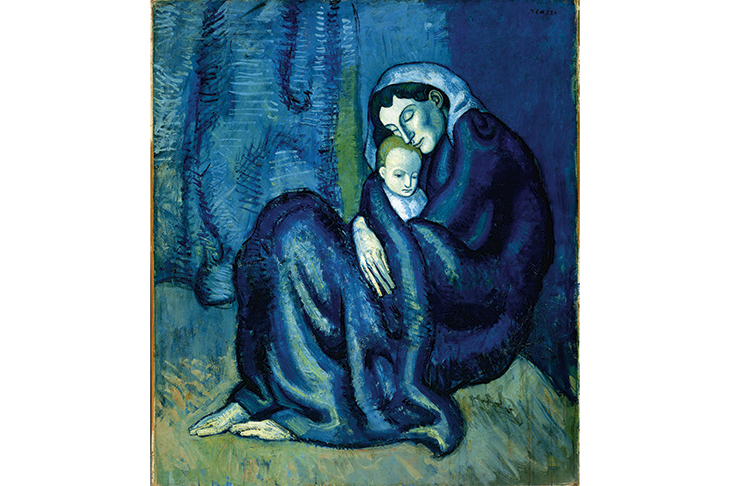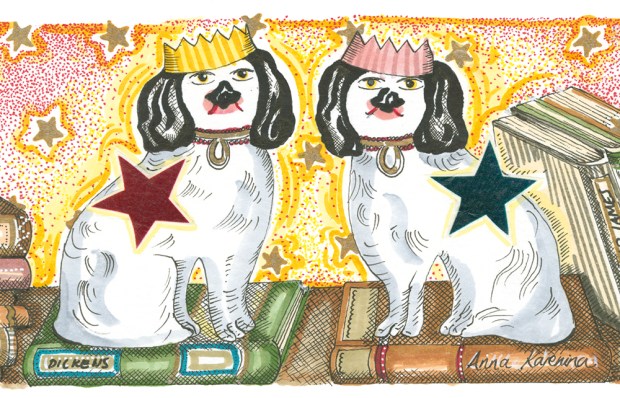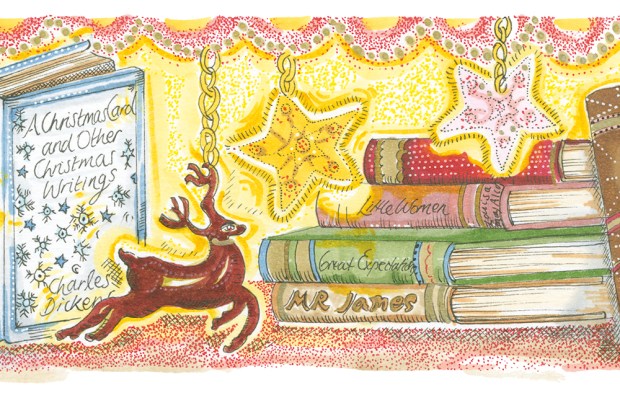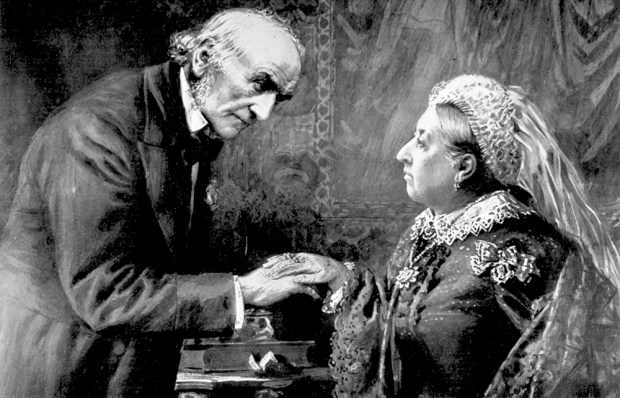A single survey, elevated by news organisations to scientific certainty, suggests that air travellers may be more susceptible to tears than their earthbound selves. I remembered this on a recent long-haul flight, when I wept not at a weepy, but over Sarah Knott’s Mother: An Unconventional History. The last book of similar intellectual heft to make me cry toppled from a bookshelf on to my foot.
The emotive power of Knott’s social history flows from her excellence as a writer and storyteller. Back home, Lorna Gibb’s wonderful Childless Voices: Stories of Longing, Loss, Resistance and Choice stirred my emotions too. The authors’ subject matter is complementary and overlapping. Knott interweaves her experiences of maternity with deep research into mothering across centuries. Gibb, a biographer, novelist and academic, uncovers the lived realities of childless women in different cultures within a memoir of her own childlessness. Their narratives speak to connection and absence, injustice and resistance.
These books aren’t just profoundly moving — they’re important. In piecing together and making visible a vast sweep of female existence routinely hidden or erased, Knott and Gibb reveal central truths about the roots and continuing drivers of gender inequality. Women, whatever their circumstances, have always been damned to disadvantage. We are damned if we do become mothers, damned if we do not.
This was already known to me, through my own research and political activism, and internalised at an early age watching my clever, creative mother struggle and fail to find satisfaction in the mother-housewife role prescribed for her generation. It certainly influenced my decision not to have children — a decision easy enough to make in a country that enables some measure of reproductive choice. In such countries, as Knott writes, birth rates are falling, and no wonder. ‘Somewhere between the fecund past and the parsimonious present, mothering as dilemma, as question, replaced mothering as destiny.’
Some of the penalties that accompany my decision gain focus with age. Gibb helpfully lists some of them: tax and inheritance systems tend to exact a higher toll on the childless in life and in death. Adult children, usually female, are expected to supplement deficient state care for the elderly. As a childless woman, I will care for others, but may end, as Pope Francis warned crowds in St Peter’s Square, ‘with the bitterness of loneliness’ and in the maw of a care gap. (Gibb pushes back; children don’t invariably love and support their parents in later life.)
One penalty of childlessness has always been obvious: the wider world questions my character. The Pope in the same 2015 address declared that ‘the choice to not have children is selfish’. Gibb also cites notorious examples of prejudice against childless female politicians including Andrea Leadsom’s comment, when she was in contention for the Tory leadership against the childless Theresa May, that ‘being a mum means you have a real stake in the future of the country’. Even as Gibb’s social media timelines erupt with criticism, Gibb sees positions ‘not much better than Leadsom’s… such as one beginning “I have nephews/nieces etc and I’m sure May does too, they will give her a stake in the future”.’ The consensus that ‘we only really care about people we are biologically related to’ reinforces the cultural ideal of maternal love as unique and uniquely self-sacrificing, a myth that damages mothers and non-mothers — and men — in ways Knott also explores.
For Gibb, these assumptions carry an additional sting. She grieves her childlessness, as so many do. She is childless not by choice but because of suffering from endometriosis. The medical profession, structurally predisposed to miss or misdiagnose female pathologies, duly fails to identify the condition Gibb describes with visceral clarity:
I would find myself on the floor crying, rolled in a ball, perhaps howling for it to stop, or retching on my knees… It is the second most common gynaecological condition, but it took my GP no less than seven crucial, fertility-changing years to refer me for the tests needed to diagnose it.
The autobiographical elements of Gibb’s and Knott’s books are not mere frameworks for their investigations: they form their beating core. The personal is political. Knott, an eminent scholar, details the physicalities of maternity, hers and others. She wonders about breast milk and finds fragments — letters, diaries and documents — that give historical context to the phenomena she is discovering as a new mother. In the late 18th century, the outsourcing by privileged women of breastfeeding to wet nurses falls into disfavour, shackling mother and baby together in a new sentimentalist vision that positions breastfeeding as ‘mothering’s fundamental feature’. The ideas bombarding mothers about how to mother change; the message that their mothering is suboptimal persists.
Knott charts the fog and confusion of relentless early-months maternity. ‘Maternal sleep,’ she observes, ‘is a dirty, torn cloth.’ Parenting manuals, cooked up in the crucible of patriarchal culture, fail her.
The defiant feminism I inherit from my former life is only of limited help. That particular version of feminism — that gender and sex are socially made, that declarations about femininity are only declarations, that gender and sexuality intersect with race and class — helps me perform ideology critique on the manuals. Left, right, left, right, progressive, conservative. But critique holds neither the fatigue nor the uncertainty at bay. In the blur of the here and now, and to my dismay, I mostly want to know what to do next.
The maternity penalty is multifaceted and shapeshifting, from the cultural lash of guilt that flays working mothers to tangible workplace discrimination against any woman of childbearing age. Knott, as Gibb, never gives way to self-pity. Both women consider themselves relatively lucky, and their research provides shape and horrific detail to that understanding by illuminating the intersections of racism and misogy-ny and the circumscribed forms of value placed on female lives in other times and cultures.
Knott, for example, examines accounts of slavery in 19th-century South Carolina and the brutal inevitability for female slaves that they will be sexually assaulted not as an addition to their market worth but to enhance it: ‘Women’s distinctive ordeal under slavery was to be reproductive as well as productive. Infertile women were often sold away.’
Gibb tells the modern-day story of Rosa, a Roma teenager in Slovakia made pregnant by rape, who sought an abortion at her local hospital. A few years later, living with her husband in London and unable to conceive the baby they wanted, she visits a London clinic, only to discover she has been sterilised, as part of a widespread national programme documented by activists led by the human rights lawyer Barbara Bukovska, but still denied by authorities. Childless Voices also memorialises individual women exiled, murdered or driven to suicide because they are — a word that Gibb detests — barren.
Some of this material is gruelling. What made me cry and turns both books into unlikely page-turners are their stories of human resilience, hope and love. There are grounds for optimism too.
Knott and Gibb delineate some of the key mechanisms and structures that, in hurting women and throttling female potential, damage everyone. Political solutions are not hard to find. I am the co-founder of the Women’s Equality Party, which campaigns for fully shared, properly invested parental leave, universal childcare, a media better able to comprehend and cover issues impacting all of us, and a medical establishment that would not respond to a patient fainting in a supermarket from the pain of endometriosis, as Gibb did, by telling her that ‘some women just have bad periods’. As the experience of the Nordic countries testifies, such policies quickly pay for themselves in economic growth and gains in physical and mental wellbeing across populations.
A reason more countries do not follow the Nordic example is also why I fear that these brilliant books may not have the impact they deserve. Patriarchal culture, in inflicting its ideas of maternity and childlessness on women, assumes that these are topics exclusively of import to women. Men need to read these books. It is likely that not enough of them will.
Got something to add? Join the discussion and comment below.
Get 10 issues for just $10
Subscribe to The Spectator Australia today for the next 10 magazine issues, plus full online access, for just $10.
You might disagree with half of it, but you’ll enjoy reading all of it. Try your first month for free, then just $2 a week for the remainder of your first year.














Comments
Don't miss out
Join the conversation with other Spectator Australia readers. Subscribe to leave a comment.
SUBSCRIBEAlready a subscriber? Log in